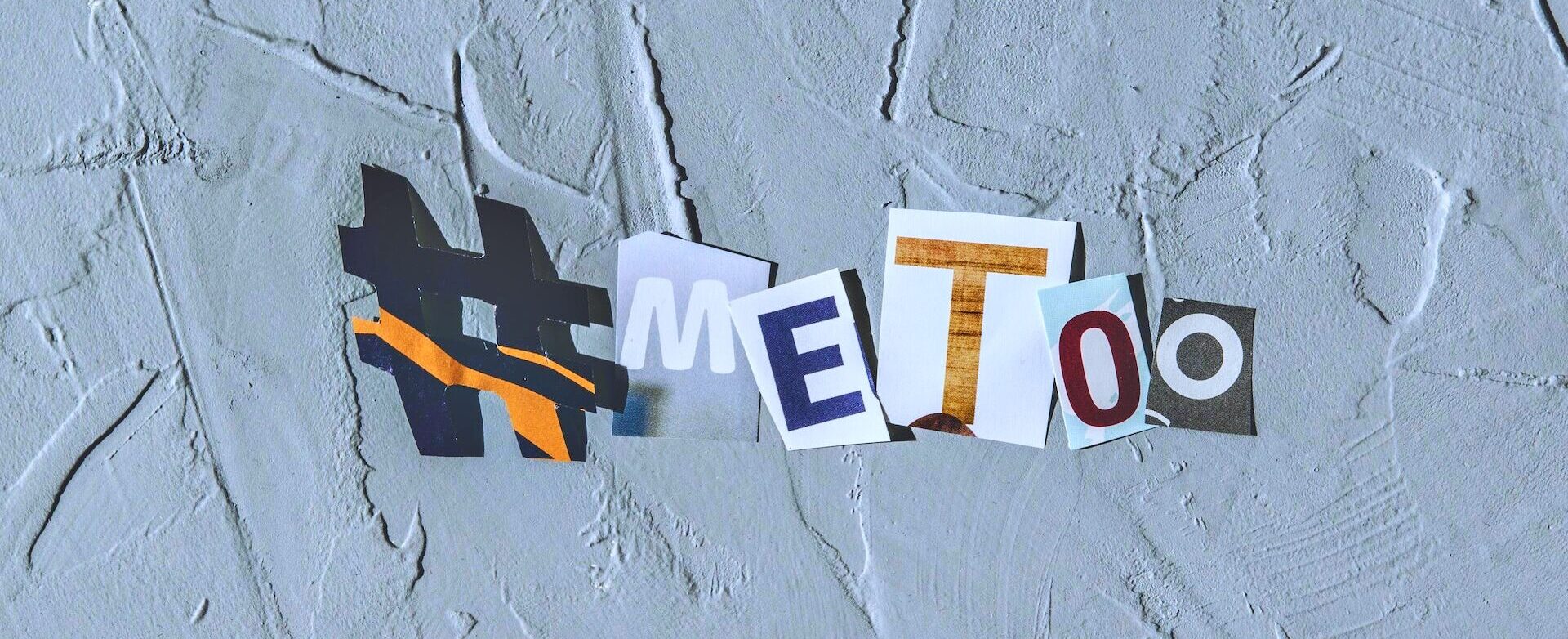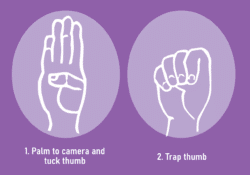Domestic Abuse Assistance. Domestic abuse can happen to anyone. It has happened to me. Once I got out of the relationship, I thought I was OK. But I wasn’t. My past abusive relationship affected how I felt about myself as a person and woman. Like many other victims of domestic abuse, I thought, “if I had just stopped talking, or If I hadn’t lied, or it was my fault.” It is not your fault!
A famous actor, Johnny Depp, was recently found to be a victim of domestic abuse. Yes, men can be victims of physical and emotional abuse as well. If you are experiencing abuse in your home or at work, you should seek help. Many women suffer domestic abuse, which may spill over to their kids. Too many women and children lose their fight against domestic violence and die at the hands of their abusers. You are not alone. You deserve better! I deserved better!
TABLE OF CONTENTS
- Getting Help
- What is Domestic Abuse
- What Emotional Abuse Sounds Like
- What Domestic Abuse Looks Like
- The Domestic Abuse Hand Signal
- Charities that Help Victims of Domestic Abuse
- The National Domestic Violence Hotline
- Domestic Abuse Assistance
- What Kind of Help Can I Get?
- Other Resources for Victims and Survivors
Getting Help
Some programs and organizations can help you with counseling and, if necessary, a safe place to go when you feel you are in danger. You might grow up in the same situation if raised in an abusive home. No one should live in abuse. There are many types of domestic violence. All abuse causes shame, fear, low-self esteem, depression, and anger. Know it is not your fault.
What is Domestic Abuse
According to the NCADA, Domestic Abuse is defined as “Domestic violence is the willful intimidation, physical assault, battery, intimate assault, and other abusive behavior as part of a systematic pattern of power and control perpetrated by one intimate partner against another. It includes physical violence, intimate partner violence, psychological violence, emotional. or sexual.
What Emotional Abuse Sounds Like
- Look what you made me do
- Why do you make me hit you
- You always make me so angry
- I should have never married you
- You are so fat; nobody will else want you
- You’re too dumb to take care of yourself
- Where are you going to go? You need me
- If you leave, I will kill myself
- If you leave, I will kill you
What Domestic Abuse Looks Like
- Throwing things
- Breaking things
- Beating you
- Causing bruises
- Breaking bones
- Beating your children
- Taking the keys to your car
- Putting holes in walls and doors
- Not giving you money
- Tearing, burning, throwing out your clothes
- Refusing to let you see friends or family
The Domestic Abuse Hand Signal
The Signal for Help (or the Violence at Home Signal for Help, is a one-handed gesture to alert someone that you are in danger or fear for your life. The Covid pandemic was one of the worst times for someone trapped in an abusive situation as you had no escape from going to work, school, or other activities.
The Canadians Woman’s Foundation created this gesture for help in April 2020 as a universal sign you need help. The signal is done by holding up one hand with the thumb tucked under the palm and folding the remaining four fingers over the thumb. It can be used in person or via video. If you are in public, or on a video call, and want help, or think you are in danger, use this hand gesture.
Charities that Help Victims of Domestic Abuse
Once you get the courage to get help, some organizations can offer a safe place for you or you and your children to live. They can help with counseling, legal advice, food, clothing, and re-establishing your life. Most of all, you can get the emotional and spiritual help you need to heal. Below are some places that can give you the help and support you need. And if you still live with your abuser, they can help you establish a safe plan to leave your situation.
The National Domestic Violence Hotline
NDVH has highly trained advocates, specifically trained in the area of abuse. The organization has been providing help to victims since 1996. You can find counseling for victims, friends and family, abusers, and a path to safety if you desire. They can help you with a personal plan to remain safe in your home and a way to leave. They can also give you information concerning your legal rights in the relationship.
- National Violence Against Women Hotline
- Domestic Assistance – Salvation Army
- Catholic Charities Sanctuary for Women
- Help for Battered Women Guide
- Violence Against Women
Getting help with Domestic abuse can be tricky. The person needing help is often in danger if the abuser knows you are trying to leave or get help. Many shelters have programs to help women and children seeking a safe place to lay their heads. Finally, you can chat, text, or call The National Domestic Abuse Hotline. When you are ready, they are here for you.
1. Salvation Army
The Salvation Army provides many services to victims of abuse. You can get help with temporary housing, help with bills, clothing assistance, free furniture, free meals, and counseling. The Salvation Army’s Phoenix Elim House is where you and your family can stay for up to 120 days. and you can have up to 8 children, no older than 17 years old. Here you can receive counseling, and the children have arts and crafts trips. Enter your zip code to find the nearest location:https://www.salvationarmyusa.org/usn/contact.
2. Catholic Charities
The goal of Catholic Charities for victims is to help them obtain a safe and stable family environment. They provide counseling for the victim and the perpetrator to understand how their behavior affects their partner and children. They provide a safe place through their domestic violence shelter, support groups, etc. Find help here:https://www.catholiccharitiesusa.org/find-help/
3. St. Vincent de Paul
St Vincent de Paul helps by assigning you a case manager who will take you through assessing your needs. They also help with housing, health, counseling, therapy and immigration needs, education, etc. This faith-based charity offers, Services for domestic violence survivors, emergency shelter, and transitional housing. Call to find help nearest you. 415-757-6560
4. HUD
Adults experiencing domestic violence can not be evicted from Federally Subsidized or Public Housing. If you live in an apartment with an abuser who is not on your lease, you have protection through VAWA. VAWA is the Violence Against Women Act.
5. The YWCA
The YWCA has been helping women and girls who are victims of abuse find help and safety. They are the largest promoter of domestic violence shelters and services throughout the United States. Each year more than a half-million women and children receive services each year.
The YWCA provides many services that help, such as crisis hotlines, safe shelters for women and women and children, and other help for victims of domestic abuse.
Domestic Abuse Assistance
National Coalition Against Domestic Violence
The National Coalition Against Domestic Violence is dedicated to changing how the public responds to domestic abuse. They are the voice of those with no voice and the hand that reaches out into the darkness. Its mission is, “The vision of NCADV is to create a culture where domestic violence is not tolerated; and where society empowers victims and survivors and holds abusers accountable.”
If you are a victim of domestic violence, please do not suffer in silence. Organizations and trained people can give you support and understand what you are experiencing. It will help if you protect yourself and your children. Contact the organization in this post to get help with counseling, legal advice, and a safe place to go for yourself and your children.
What Kind of Help Can I Get?
Many men and women who live in abusive situations don’t leave. Do not feel embarrassed if you have not reached out for help. The abuser is an expert at manipulation and creating fear in those they abuse. If you are not ready for help, we applaud your steps in getting help or getting away and into a healthy environment.
- Financial Help – Often, abusers will ensure they are trying to control access to money. This is because you will not be able to leave the abuser. NCASV can lead you to financial assistance and educate survivors of abuse to gain the financial means to re-establish themselves and obtain financial independence.
- Cosmetic Assistance – Survivors of abuse need plastic surgery after burning or sustaining broken bones. For these men and women, they offer reconstructive and cosmetic medical assistance for free.
- Help for Family or Friends – They offer instructions on talking to a friend, family member, or someone in an abusive relationship.
- Help for Reproductive Coercion – Abuser sometimes insists on their partner becoming pregnant, knowing this will tighten their hold and make it more difficult for the person to leave.
- Support for HIV/AIDS – Women are three times more likely to diagnose with HIV/AIDS because of intimate partner violence.
NCADV’s Main Office
One Broadway, Suite B210
Denver, CO 80203
Phone: 303-839-1852
Other Resources for Victims and Survivors
National Domestic Violence Hotline
1-800-799-SAFE (7233)
TYY: 1-800-787-3224
Text “START” to 88788
National Sexual Assault Hotline
1-800-656-HOPE (4673)
National Teen Dating Abuse Helpline
1-866-331-9474
1-866-331-8453 (TTY)
National Human Trafficking Hotline
1-888-373-7888
711 (TTY)
Text: 233733
National Runaway Safeline
1-800-RUNAWAY (800-786-2929)
National Center for Victims of Crime
1-855-VICTIM (1-855-484-2846) (call or text)












Leave a Reply